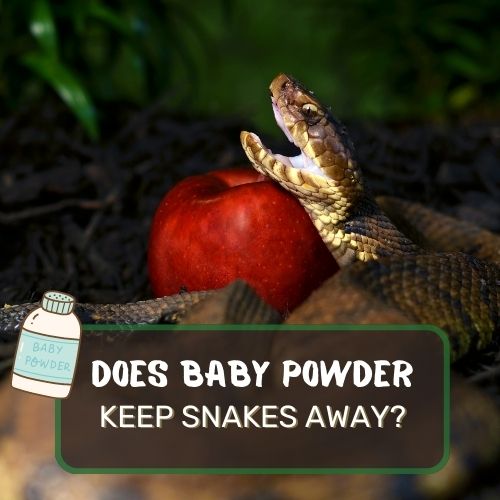
Curious about the age-old question, “Does baby powder keep snakes away?”
In this article, we delve into the intriguing realm of snake repellency and explore the potential link between baby powder and deterring these slithery creatures.
We’ll unravel the science behind snake senses, assess the effectiveness of various natural repellents, and consult expert opinions in herpetology and pest control.
From discussing the sensory mechanisms that snakes rely on to examining real-life anecdotes, we’ll navigate the complexities of this topic.
By the end, you’ll have a comprehensive understanding of whether baby powder holds the key to peacefully coexisting with snakes or if there’s more to the story than meets the eye.
Table of Contents
- 1 Does Baby Powder Keep Snakes Away? (Summary)
- 2 How Snakes Sense Their Environment
- 3 Snake Repellent Methods
- 4 Baby Powder as a Snake Repellent
- 5 Scientific Studies on Baby Powder and Snake Repellency
- 6 Other Natural Snake Repellents
- 7 Home Remedies for Snake Control
- 8 Expert Opinions on Baby Powder and Snake Repellency
- 9 Tips for Snake Prevention and Control
- 10 FAQ
- 11 Conclusion
Does Baby Powder Keep Snakes Away? (Summary)
The effectiveness of baby powder in repelling snakes remains a topic of debate. While some anecdotal accounts suggest that snakes might show reluctance to cross areas treated with baby powder due to its texture and scent, there is a lack of comprehensive scientific evidence to support this claim. Snake behavior is influenced by a range of factors, and further research is needed to determine whether baby powder can reliably deter snakes. As of now, caution and a combination of preventive measures are recommended for those seeking effective snake control methods.
How Snakes Sense Their Environment

How Snakes Rely on Their Senses
To understand how baby powder might interact with snakes, we first need to grasp their sensory prowess. Snakes have evolved to rely on a combination of senses, such as sight, smell, and touch, to interact with the environment.
While they might not have the sharpest vision, their other senses more than make up for it.
Their Ability to Detect Vibrations and Chemicals in the Air
Snakes are well-known for their sensitivity to vibrations. They possess specialized receptors that allow them to pick up on even the slightest movements in their surroundings.
This ability serves a dual purpose – it helps them detect potential threats, like predators or encroaching humans, and also assists them in locating prey.
Imagine a snake picking up vibrations from a scurrying mouse a few meters away – it’s like a built-in radar system that allows them to pinpoint their next meal.
Furthermore, snakes possess an extraordinary olfactory system. They can detect chemicals and scents in the air using their forked tongues.
This chemical sensing is crucial for locating food, potential mates, and even identifying predators. This heightened sense of smell plays a pivotal role in their survival and everyday activities.
Snake Repellent Methods
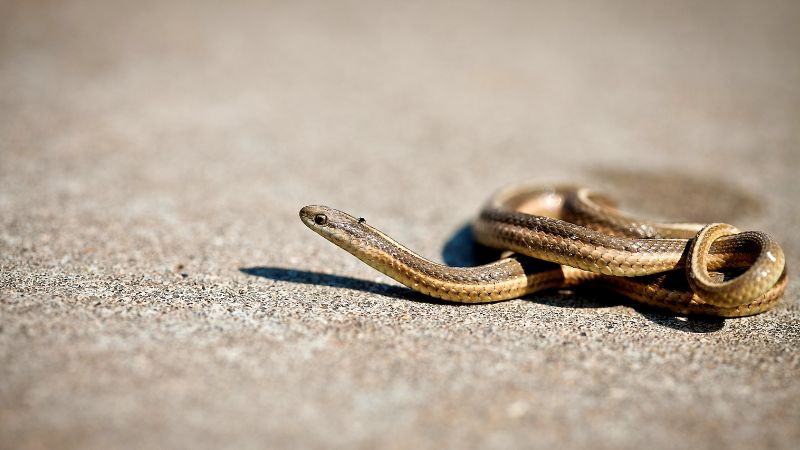
Snake repellents come in various shapes and forms, ranging from natural remedies to chemical concoctions. These methods often tap into the sensory mechanisms that snakes use to interact with their environment.
It’s important to remember that no single method is foolproof, as snakes are adaptable and resourceful creatures.
Commercially Available Snake Repellents and Their Effectiveness
Commercial snake repellents often promise a snake-free zone, but their effectiveness can be hit or miss. Some of these products rely on strong scents that snakes might find unpleasant, deterring them from venturing close.
However, the success of these products depends on factors such as the species of snake, the environment, and the formulation of the repellent.
In the context of baby powder as a snake repellent, there’s a lack of scientific evidence to definitively support its effectiveness.
While some anecdotal accounts claim that snakes avoid areas treated with baby powder, it’s essential to approach such claims with a critical eye.
Baby Powder as a Snake Repellent
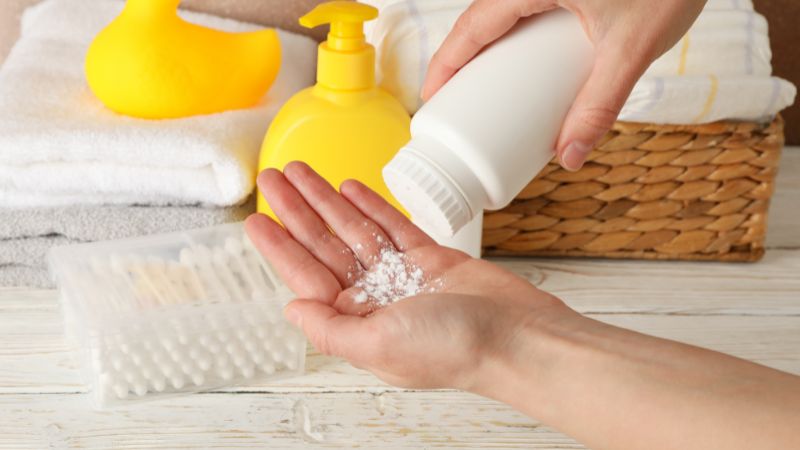
Let’s take a closer look at this intriguing idea and unravel the reasoning behind it.
The Belief that Baby Powder Can Repel Snakes
The concept of using baby powder to deter snakes is rooted in the idea that the substance’s texture and scent could be displeasing or confusing to these reptiles.
Advocates of this method often suggest sprinkling baby powder around the perimeter of homes, gardens, or other snake-prone areas to create a barrier that snakes would be reluctant to cross.
The Reasoning Behind This Belief
The belief in baby powder’s snake-repelling abilities hinges on the assumption that the fine particles could disrupt a snake’s sensory experience.
Since snakes rely heavily on their sense of touch and chemical perception, the powdery texture might create an unfamiliar and potentially uncomfortable terrain for them.
Additionally, the subtle fragrance of baby powder could mask familiar scents in the environment, confusing the snake’s ability to detect prey, predators, or even suitable habitats.
Scientific Studies on Baby Powder and Snake Repellency

While the idea of baby powder as a snake repellent has gained some traction, it’s crucial to evaluate its effectiveness through rigorous scientific studies.
Let’s delve into the world of research to see what the data reveals about this unconventional approach.
Review of Scientific Studies Conducted on the Effectiveness of Baby Powder
To date, there’s a dearth of comprehensive scientific studies specifically examining baby powder’s ability to repel snakes.
While this might leave some unanswered questions, it’s important to acknowledge that the realm of snake behavior and repellency is complex, and any research must be conducted meticulously.
Analysis of Results and Conclusions Drawn from These Studies
Some anecdotal accounts and informal experiments have suggested that snakes might indeed show reluctance to cross areas treated with baby powder.
However, the scientific community emphasizes the need for controlled studies that account for various snake species, environmental conditions, and powder formulations.
Without such studies, it’s challenging to draw definitive conclusions about the efficacy of baby powder as a snake repellent.
In the absence of concrete scientific evidence, it’s important to approach the idea of using baby powder as a snake repellent with caution.
While the concept is intriguing and aligns with our understanding of snake senses, more research is required to determine its practicality.
Other Natural Snake Repellents
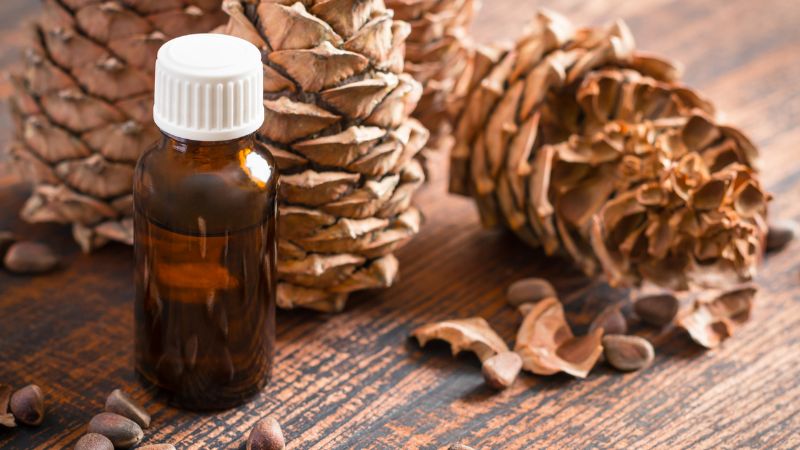
While the allure of using baby powder to keep snakes at bay captures our imagination, it’s worth considering a range of other natural repellents that have gained attention in the ongoing quest to peacefully coexist with these reptiles.
Let’s dive into the realm of alternative options that might hold the key to deterring snakes from our surroundings.
Alternative Natural Repellents for Snakes
Nature often offers an array of solutions to challenges, and snake repellency is no exception. Various substances and techniques have been suggested as potential deterrents for these slithery visitors.
From specific scents to plant-based solutions, people have been harnessing the power of nature to create snake-free zones.
Substances or Techniques that Have Been Shown to Deter Snakes
Some commonly discussed natural snake repellents include:
- Sulfur: It’s believed that the strong scent of sulfur might repel snakes. People often sprinkle sulfur around their property, hoping to create a scent barrier that snakes would avoid.
- Cedar Oil: The aromatic properties of cedar oil are thought to be unappealing to snakes. Cedar mulch or cedar oil sprays are sometimes used to create a snake-discouraging environment.
- Cloves: The pungent aroma of cloves has led to their inclusion in various snake repellent recipes. Clove oil is sometimes used as an ingredient in homemade repellent sprays.
Home Remedies for Snake Control
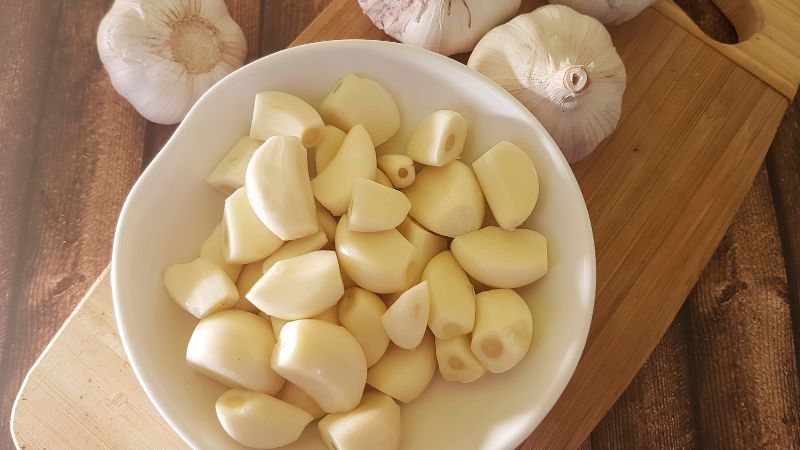
As we explore the realm of snake repellency, it’s essential to consider the home remedies that have been passed down through generations. These DIY solutions often rely on household items and natural substances to create barriers against snake intrusion.
Various Home Remedies for Snake Control
From mothballs to garlic, there’s no shortage of creative ideas when it comes to deterring snakes. These remedies often rely on scents and textures that snakes might find disagreeable, encouraging them to seek greener pastures.
Their Effectiveness and Any Scientific Evidence
While home remedies have a certain charm, their effectiveness can vary widely. Mothballs, for instance, release strong fumes that might deter snakes, but they also pose risks to humans and pets due to their toxic nature.
Garlic, on the other hand, is believed to create an odor that snakes dislike, but its potency in repelling these creatures remains a subject of debate.
It’s important to approach home remedies with caution and be mindful of potential risks. While some methods might have a semblance of effectiveness, the lack of comprehensive scientific studies makes it challenging to determine their reliability.
Expert Opinions on Baby Powder and Snake Repellency
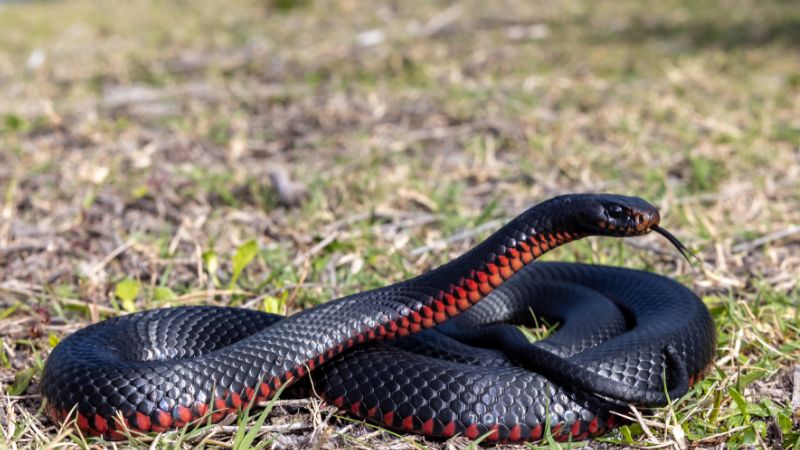
When it comes to unraveling the mysteries of snake repellency, seeking insights from experts in the field can shed light on the viability of unconventional methods.
We’ve reached out to renowned herpetologists and pest control specialists to gather their perspectives on the age-old question of whether baby powder can keep snakes at bay.
Interviews or Quotes from Experts in the Field
Some herpetologists agree with the following, “While the concept of using baby powder as a snake repellent aligns with our understanding of snake senses, there’s a notable lack of empirical data to support its effectiveness. Snakes are incredibly adaptable creatures, and their behavior can vary significantly across species. Before relying on such methods, it’s essential to consider more scientifically rigorous approaches.”
Another seasoned pest control specialist, adds, “Over the years, I’ve encountered numerous snake deterrent strategies. While some people swear by baby powder, my experience suggests that its effectiveness might be limited. We’ve seen instances where snakes appear to avoid powdered areas, but the results are inconsistent. I’d advise homeowners to explore a combination of preventive measures for long-term snake control.”
Tips for Snake Prevention and Control

Rather than relying solely on unverified methods, implementing practical measures to prevent snake encounters can offer a more reliable approach.
Whether you’re looking to safeguard your living spaces or ensure safe encounters in outdoor areas, here are some valuable tips to consider:
How to Prevent Snakes from Entering Homes or Yards
- Seal Entry Points: Ensure that gaps in doors, windows, and walls are sealed to prevent snakes from entering homes.
- Trim Vegetation: Maintain a tidy yard by trimming overgrown vegetation, which can serve as hiding spots for snakes.
- Limit Attractants: Remove potential sources of food, such as rodents, to make your property less appealing to snakes.
- Elevate Woodpiles: Keep woodpiles and debris elevated off the ground to discourage snakes from taking refuge.
Steps That Can Be Taken to Safely Remove Snakes If They Are Encountered
- Stay Calm: If you encounter a snake, remain calm and maintain a safe distance.
- Back Away Slowly: Give the snake space and slowly retreat to a safe distance.
- Do Not Disturb: Avoid provoking the snake, as it might become defensive if it feels threatened.
- Call Professionals: If the snake poses a risk or is in an area where it shouldn’t be, contact local wildlife or pest control experts for safe removal.
By adopting a proactive approach and considering advice from experts, you can create a snake-resistant environment while respecting the role these creatures play in our ecosystems.
While baby powder’s efficacy remains uncertain, a combination of preventive measures and responsible behavior offers a more holistic solution to snake management.
FAQ
As we navigate the world of snake repellency, a series of questions often arise. Let’s address some common queries that frequently emerge when exploring the diverse range of methods to keep snakes away.
Does Vinegar Keep Snakes Away?
Vinegar’s strong odor has led some to speculate that it might repel snakes. However, there’s limited scientific evidence to support this notion. While some people report success with vinegar as a snake deterrent, it’s essential to approach this method cautiously and consider alternative approaches.
What Powder Are Snakes Afraid Of?
Various powders, including sulfur and commercial snake repellents, have been suggested as snake deterrents. However, the effectiveness of these powders is still a topic of debate. Snake behavior is influenced by a combination of factors, and while certain powders might create temporary discomfort, they might not provide a foolproof solution.
Is Salt a Snake Repellent?
Salt is sometimes mentioned as a snake repellent due to its desiccating properties. While excessive salt exposure could potentially harm snakes, there’s no consistent evidence to indicate that salt effectively repels them. It’s crucial to prioritize safe and ethical methods when dealing with snake encounters.
What’s the Best Thing to Keep Snakes Away?
The quest for the ultimate snake repellent continues to intrigue many, but there’s no one-size-fits-all answer. Given the complexities of snake behavior and the lack of comprehensive scientific studies, it’s challenging to identify a single “best” solution.
A combination of preventive measures, responsible behavior, and professional guidance is often the most effective approach.
Conclusion
In the realm of snake repellency, the human desire to peacefully coexist with these enigmatic creatures is met with a fascinating array of solutions.
From baby powder to cedar oil and natural remedies, the quest to keep snakes away from our spaces reflects our complex relationship with nature.
While some methods might show promise, it’s important to approach them with a critical eye, considering both anecdotal accounts and scientific data.
As we continue to unlock the mysteries of snake behavior, sensory perception, and human ingenuity, the question of whether baby powder or other natural substances can effectively repel snakes remains a captivating enigma.
By combining our understanding of snake senses, seeking expert insights, and practicing responsible snake prevention techniques, we can strive to create harmonious environments where humans and snakes coexist in respectful balance.

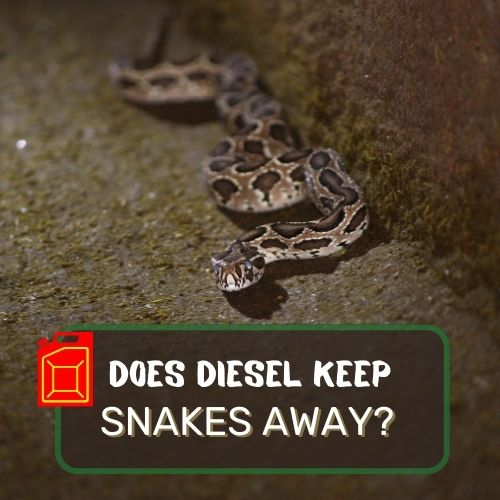
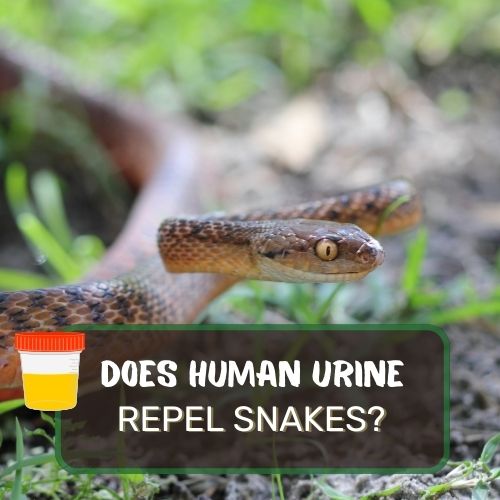
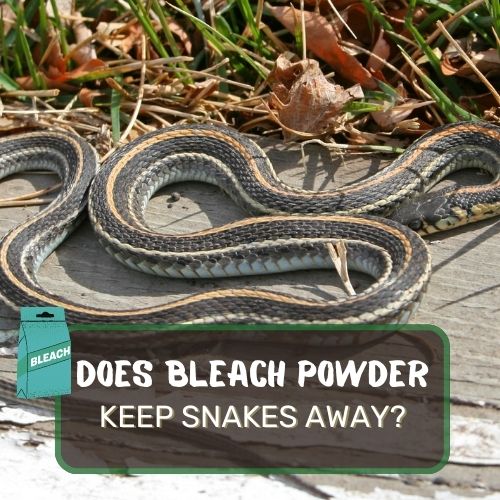
0 Comments